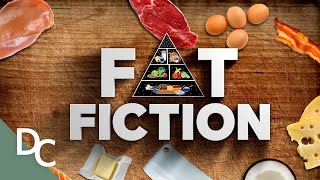The standard approach treats high blood sugar with medications while ignoring what caused it: chronically high insulin. A different approach—addressing the root cause—achieves remission rates up to 46% in real-world settings. Here's the evidence most doctors never see.
Insulin Resistance
Reduced sensitivity to insulin
A condition where your body's cells don't respond to insulin as they should, which often leads to type 2 diabetes
Article (2)
You've tried everything. Eaten less, exercised more, counted calories. But the weight won't budge. What if the problem was never your lack of willpower — but a fuel switch that got stuck?
Video (3)
Dr. Jason Fung’s main message in this video is that type 2 diabetes and insulin resistance are not chronic, irreversible diseases—contrary to popular belief, they can be reversed by changing how we eat.

Fat Fiction
The Low Fat Diet Is Genocide
Conventional dietary guidelines promoting low-fat, high-carb eating are founded on flawed, cherry-picked science, leading to soaring rates of obesity and Type 2 diabetes, while decades of research confirm that saturated fat does not cause heart disease.
In this episode of The Metabolic Classroom, Professor Ben Bikman, an expert in metabolic research, discusses the debate surrounding saturated fat and its impact on insulin resistance.
Book (1)

Dr. Bernstein's Diabetes Solution
A Complete Guide to Achieving Normal Blood Sugars
Research (2)
A nurse‑delivered, real‑food low‑energy, low‑carb plan led to far greater weight loss and HbA1c reductions in 12 weeks than usual care. Short‑term cardiometabolic markers and medication use improved too.
You might wonder: Is weight loss without constant hunger even possible? Research on type 2 diabetes patients showed that a low-carb diet caused a spontaneous drop in daily calorie intake, while simultaneously boosting insulin sensitivity by 75%

